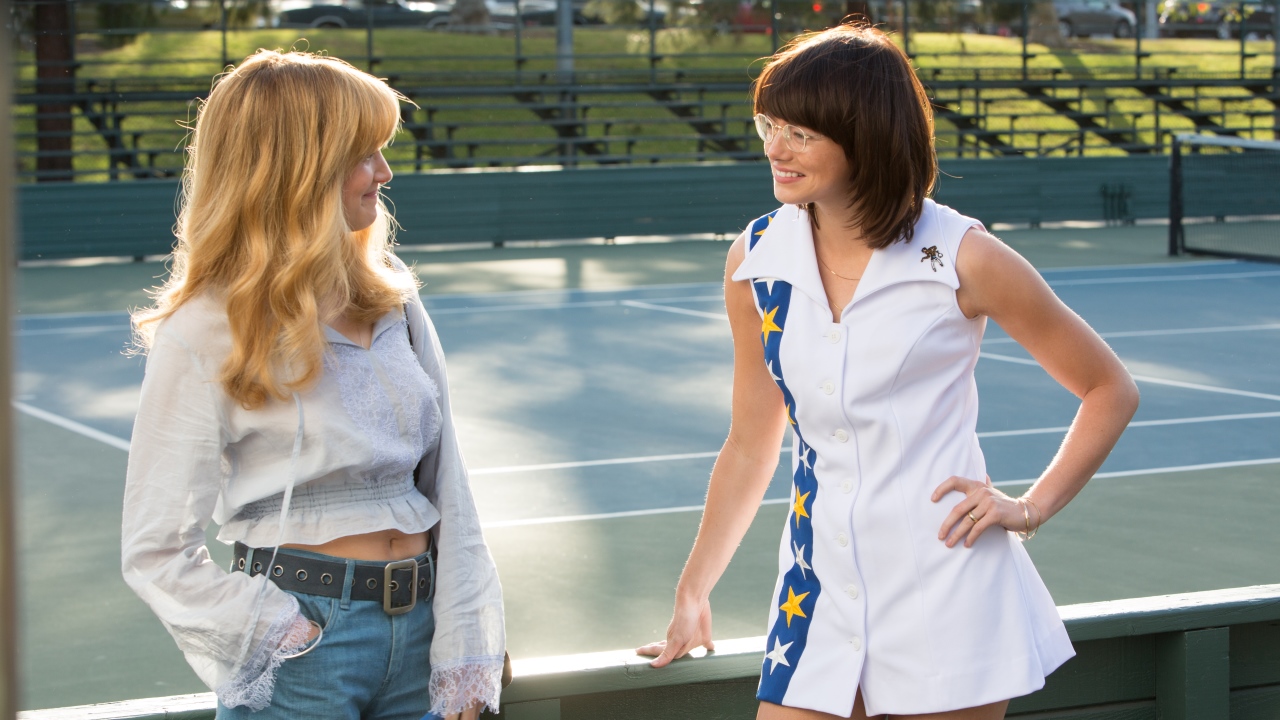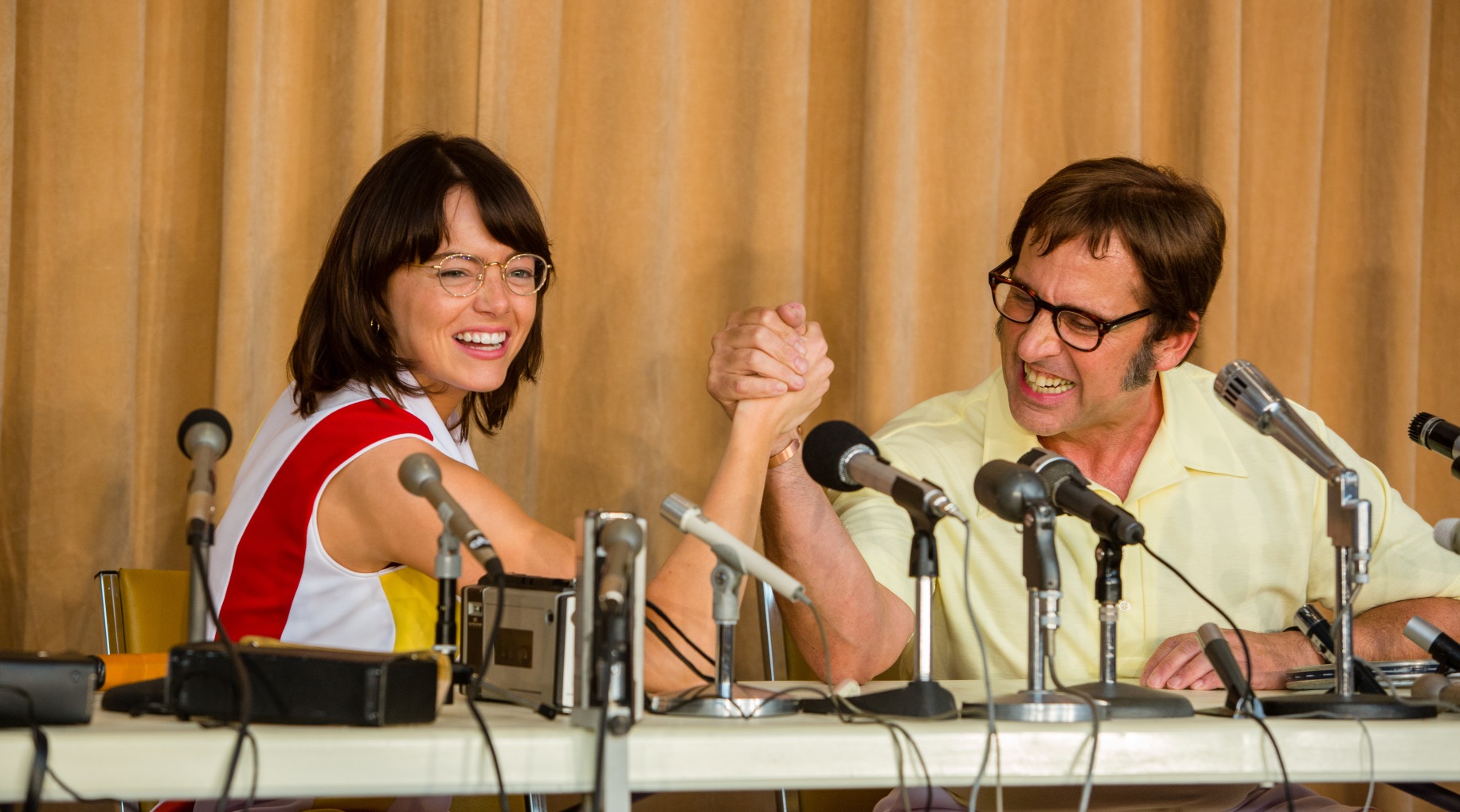GamesRadar+ Verdict
Stone and Carell ace it in this smart biopic, stylishly recreating the champ-vs-clown clash of the tennis titans that electrified ’70s America.
Why you can trust GamesRadar+
In September 1973, 90 million TV viewers watched an extraordinary mixed-sex tennis match, as 55-year-old former US champ Bobby Riggs took on the young Billie Jean King, the US No. 1 woman player. Jonathan Dayton and Valerie Faris’ slickly enjoyable, big-hearted dramedy makes their journey there as compelling as the match itself.
“Male chauvinist pig versus hairy-legged feminist” was Riggs’ rallying cry to the media. But the directors of Little Miss Sunshine dig deeper, discovering two outsiders battling easy stereotypes.
Billie Jean (Emma Stone), starting her own all-women Virginia Slims tour to escape the US Tennis Association, which pays men eight times more than women, is all about the work. Has-been hustler Riggs (a pitch-perfect Steve Carell) is a cash-hungry playboy. Determined to turn Billie Jean’s pitch for equality into his own big-money payday, Riggs’ assertion that she can’t beat him sets all of America buzzing.

Not your average sports movie, this unconventional biopic revels in the cultural battle as much as the tennis showdown. Simon Beaufoy’s wry script balances the on-court tensions and the off-court drama, giving them a warmly comic treatment. Lending poignancy to Riggs’ desperate stunts, it lets Carell flaunt his needy side, as well as some brazen bad-boy stunts. Berating his Gambler’s Anonymous meeting, he says, “You folks are here because you’re terrible at gambling.”
Wisecracking through matches and money-grabbing photoshoots, Carell is terrific. Where he’s a dead ringer for Riggs, Stone opts for emotional truth rather than impersonation. With touching intensity, she captures Billie Jean’s odd combination of tough sporting tenacity and girlish anxiety. Falling into her first lesbian affair with Andrea Riseborough’s hairdresser, she’s exquisitely vulnerable.
Dayton and Faris draw their relationship with close-up delicacy, their first haircut together as intimate as a full-on love scene. And there’s real jeopardy, too – in the homophobic ’70s, King’s fling endangered the entire women’s tour, as well as her career and marriage.
Sharp-eyed about the era’s sexism, the film is nonetheless awash in ’70s kitsch without going the full Anchorman. It pulls off convincing tennis matches, too, using old-school TV high-up shots and tense close-ups.
Careful to slice rather than smash its feminist and LGBTQ politics at us, the film resonates with today’s battles over pay equality and closeted sports stars. But it’s a pacey, entertaining watch. Like the wily Riggs, it knows what the crowd wants.
Kate is a freelance film journalist and critic. Her bylines have appeared online and in print for GamesRadar, Total Film, the BFI, Sight & Sounds, and WithGuitars.com.



